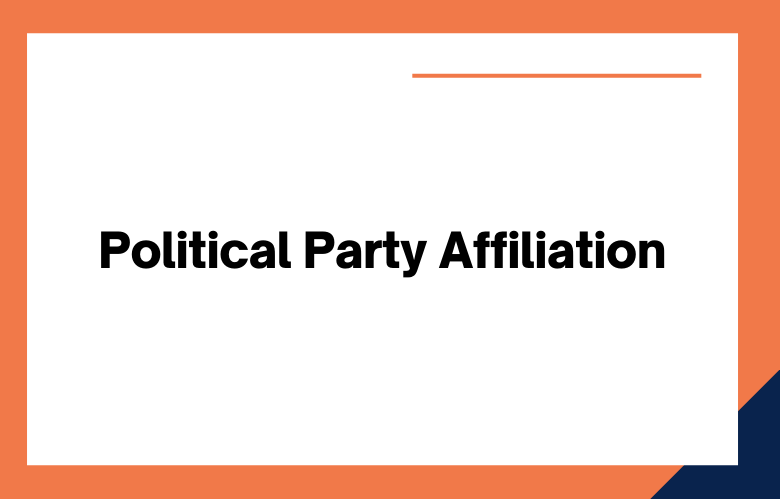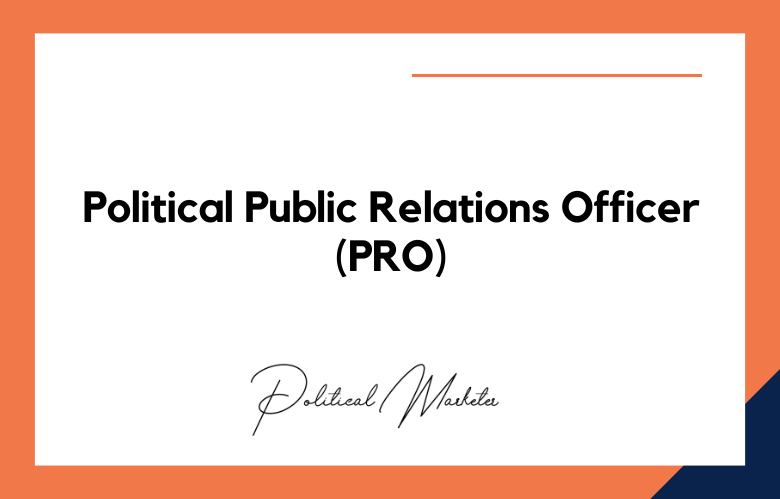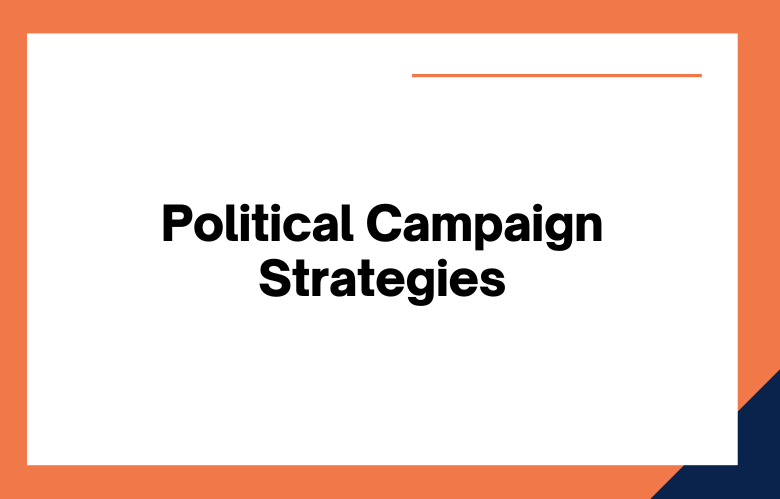How important is your political party affiliation to you? How partisan are you? And what political beliefs do you hold? These questions likely vary significantly from person to person, but a recent study explores the connection between political partisanship and beliefs. The findings may surprise you.
Do you know how you identify yourself politically? When it comes to political parties, there are two types of people: those who identify with a political party and those who don’t. In this blog post, we’ll explore the different reasons people affiliate themselves with a political party and the differences between partisanship and political beliefs. We’ll also take a look at some recent studies that have been conducted on these topics. So, read whether you’re staunchly affiliated with a particular party or just curious about what makes people tick politically!
What is Political Party Affiliation
Political party affiliation refers to an individual’s association, involvement, and support of a political party. It is “a formal organization composed of members whose goal is to win elections and obtain political power.”
Political party affiliation is a way to show the political spectrum you’re affiliated with. A political ideology can be placed left to right based on certain core beliefs and values.
Political parties are political groupings of citizens with similar social, economic, and other ideological views.
Political party affiliation refers to an individual’s personal and political preferences.
Political party affiliation is a way to classify political positions.
Political party affiliation is a way for citizens to express their political views.
What is Political Party Partisanship
Political party partisanship is an alignment of support for one party with often extreme devotion and views to the policies and platform on which that party stands.
Political party members tend to support their party leaders, even if they think it is wrong. This is called partisanship.
Political party partisanship is a view in which one holds negative feelings toward the opposing party.
A party’s partisanship is the attitude of its members. It shows whether they support their party, which usually impacts political decisions.
Political party partisanship is the actions and attitudes of people who support political parties. Political party partisanship can be seen through public opinion polls, campaign contributions, voting records, etc.
One of the significant aspects of being a partisan is that you feel like you’re a part of something bigger. You have common beliefs with your fellow members and can find camaraderie in those who share your views.
What are Political Parties Beliefs
We live in a world today that is constantly changing. A party’s beliefs make up the foundation of its principles, and it helps to provide direction for the future.
There are many different political parties, and their beliefs differ. However, the central thoughts of each party are:
(A) The Conservatives believe in financial stability and a safe environment for citizens;
(B) Labour believes that everyone has a right to high-quality education
“Political parties are groups of people with similar beliefs. They agree on key issues and have a common political philosophy.”
What are the Ideologies of political parties?
Ideology is a set of political beliefs. Often, it includes values and goals placed within a political party’s context.
Political parties are often associated with specific ideas, called ideologies. These can include the role of government and how it should be run. Some examples of ideologies are capitalism, socialism, liberalism, and conservatism.
The ideologies of political parties are the values they stand behind and what they believe in.
Political parties have ideologies that guide their actions.
The Effect of Party Affiliation on Political Preferences
Since party affiliation is a social phenomenon, political preferences are formed based on one’s exposure to the opinions and beliefs of others.
The findings demonstrate that party affiliation has a significant effect on political preferences.
It is widespread to see people from both parties voting for the same thing; it’s only natural that there are many things we agree on.
How political parties influence our beliefs
Do you know that political parties influence our beliefs? It’s true. For example, if you’re a liberal and your best friend is conservative, the chances are that your opinions will change to be more similar.
Political parties are an exciting way to influence our beliefs. However, it has been shown that we often vote against the party instead of for it.
Political parties have a profound impact on human beliefs. They often find ways to manipulate our minds by spreading fake information and telling lies about their opponents to win our votes.
What is Political Composition?
Political Composition is a topic in Political Science that focuses on people’s different ideologies, beliefs, and opinions.
Political Composition studies the size, structure, and class characteristics of the various elements that make up a society. It analyzes how these elements relate to each other in their economic functioning.
Political Composition refers to how the different political parties hold much governmental power.
Political Composition is the study of how different political groups influence each other.
Political Composition is the study of how politics can shape society.
Political Composition is how individuals are appointed to positions within a political office. It also describes how they are set.
Political Composition is how political parties are composed by citizens.
Political Composition is a term used in the study of politics. It refers to the various political groupings, ideologies, and parties within an electorate.
Conclusion
Much research and data show that political partisanship (supporting one party over the other) and political beliefs about specific issues are deeply ingrained in our psychology. If you want help understanding how your customers think, we can provide marketing strategy consulting services for political parties or politicians seeking reelection. Contact us today if this information sounds like something you need!
Political Party Affiliation, Partisanship, and Political Beliefs: FAQs
What Is Political Party Affiliation?
Political party affiliation refers to an individual’s identification with or loyalty to a particular political party based on shared values, ideology, or policy preferences.
How Is Political Party Affiliation Formed?
It is often shaped by family influence, education, socioeconomic status, religion, peer groups, and exposure to media and political events.
Can Political Beliefs Change Over Time?
Yes, political beliefs can evolve due to personal experiences, changing social contexts, major events, or new information.
What Is the Difference Between Political Ideology and Party Affiliation?
Ideology is a broader set of beliefs about government and society, while party affiliation is a specific alignment with a political party.
How Do Political Parties Influence Voter Behavior?
Parties frame issues, mobilize supporters, promote candidates, and simplify choices for voters, often reinforcing existing beliefs.
What Is Partisan Identity?
Partisan identity is a psychological attachment to a political party that can influence opinions, behaviors, and even perceptions of facts.
Why Do Some Voters Remain Independent or Unaffiliated?
Some voters prefer issue-based decisions, distrust political institutions, or feel that no party fully represents their views.
How Does Media Influence Political Beliefs and Affiliations?
Media outlets shape narratives, highlight specific issues, and reinforce ideological biases, influencing how individuals align politically.
What Role Does Social Identity Play in Political Affiliation?
Factors like race, religion, gender, and regional background can strongly influence one’s political alignment and party preference.
How Do Educational Levels Impact Political Beliefs?
Higher education levels are often associated with more liberal social views, though economic beliefs may vary across disciplines and contexts.
Can Peer Groups Affect Political Affiliation?
Yes, social circles, professional environments, and community networks can all shape or reinforce political attitudes and party loyalty.
How Does Religion Influence Political Affiliation?
Religious beliefs often inform moral values, which can align with the platforms of specific political parties.
What Is Affective Polarization in Party Affiliation?
It refers to the emotional divide where individuals not only support their party but also strongly dislike or distrust the opposing party.
Are Young People More Likely to Change Party Affiliation?
Yes, younger voters are often more fluid in their political beliefs and more open to changing affiliations based on current issues.
What Is Political Tribalism?
Political tribalism is the tendency to align with a party as a core part of identity, leading to strong in-group loyalty and out-group hostility.
How Do Political Campaigns Reinforce Party Affiliation?
Through targeted messaging, emotional appeals, and identity-based narratives, campaigns aim to deepen loyalty and suppress opposition.
Can Cultural Events Influence Political Beliefs?
Yes, events like economic crises, social movements, or national tragedies can reshape public opinion and shift political alignment.
Is Party Affiliation the Same as Voting Behavior?
Not always. A person may be affiliated with a party but vote differently based on candidates, local issues, or specific elections.
How Does Regional Context Affect Political Affiliation?
Local political culture, dominant community values, and regional history often shape the popularity and support for specific parties.
What Tools Do Researchers Use to Study Political Beliefs and Affiliations?
They use surveys, focus groups, social media analysis, longitudinal studies, and behavioral experiments to understand trends and patterns.
One way to get in touch is by filling out our online form on this site or give us a call at +91 9848321284. Let’s work together today!










